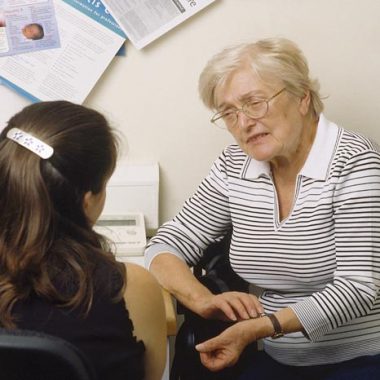When should I tell a patient to notify the DVLA of their condition?
As most GPs will already know, there are certain medical conditions listed in our guidance (previously ‘At a glance’ and now ‘Assessing fitness to drive’) that drivers need to tell the DVLA about. For example, epilepsy, diabetes and visual disorders, among many others.
If your patient has one of the conditions listed in the guidance that would affect their ability to drive you should advise them of their legal obligation to notify the DVLA. If the patient is incapable of understanding the information that they cannot drive (for example if they have severe dementia), then GMC guidance is that you should refer them to DVLA.
If you are unsure about a condition, for example if it’s not listed in ‘Assessing fitness to drive’ but you think it could impact on an individual’s ability to drive, you can always phone our medical advisers to seek advice or clarification or discuss a particular condition or patient.
In general we would like to ensure that every doctor thinks of driving in any relevant patient consultation. I know GPs are very pressurised, and when advising a patient about topics around their medical condition, for example whether they can have time off work, driving often doesn’t come into the equation. However, particularly during the initial consultation when a condition is diagnosed, a GP is in a pivotal position to advise the patient about the impact of their medical condition on their ability to safely drive.
How is this updated guidance different from previous DVLA guidance?
The medical standards haven’t changed because they are set either in legislation or after advice from our Secretary of State’s advisory medical panels. What we’ve done with the updated publication is try to make it clearer whether a condition should be notified or not, with a new layout and some new information to make it clearer when to refer. For example, there is some more information on prescription drugs, giving advice for GPs on when to consider if a drug could affect driving.
Do I need to check if my patient has told the DVLA about their condition?
You are not obligated to actively chase up whether patient has notified the DVLA, but according to GMC guidance, if you know that a patient continues to drive when they should not be, after you have tried persuading them to stop, you should contact the DVLA to report the patient. You should try to notify the patient that you are reporting them before you do so, and after you have reported them you should inform them in writing. The GMC is currently updating this guidance, to be published at the end of the year.
How do I report a patient to the DVLA?
There are a variety of routes you could take. Any healthcare professional can contact the DVLA’s medical advisers by phone, email or letter – call 01792 782337 or email [email protected]. Phone lines are open 10.30-13.00 Monday to Friday. If you make a verbal notification we will request that it is followed up in writing. There is also a notification form available that you can return by email or post.
What will happen to a patient after I report them to DVLA? Will they lose their licence?
Once the DVLA has been notified about a patient, either from the patient or a healthcare professional, we start the medical enquiries process. During this, we will first obtain information from the patient themselves, then we’ll contact their GP, and then we may reach out to hospital consultants, psychologists, or whatever relevant specialties have been involved in the individual patient’s care.
There are a very small number of conditions where a licence would be removed very quickly, particularly things involving alcohol misuse. But I’d like to stress that most people will keep their licence when they declare a medical condition to DVLA and as an agency we’d like to enable people to continue driving if at all possible but of course only if it’s safe to do so. Someone’s licence may be ‘restricted’ – valid for one year or three years etc, or restricted for example to driving to automatic cars or cars with hand controls only, but again we will always look to offer an individual a licence if we can and if it’s safe, not only for that individual but also for all road users.
What if a patient has a temporary condition?
A short-term medical condition is not something the DVLA would normally require a formal notification of. But we do have some guidance to prompt doctors whether they should consider advising patients not to drive during this time.
Do I have to advise a patient to contact the DVLA after surgery?
A patient would not normally have to notify the DVLA after surgery, unless the condition will affect driving and will last longer than three months.
Dr Wyn Parry is Senior Medical Adviser at the DVLA. You can read the full guidance here.
Pulse October survey
Take our July 2025 survey to potentially win £1.000 worth of tokens














